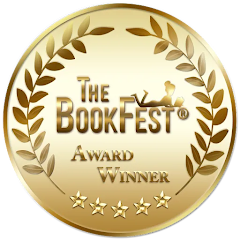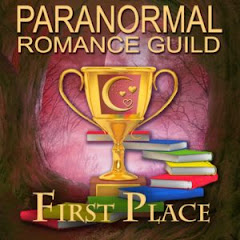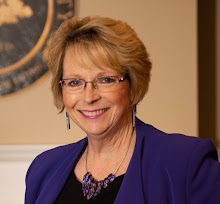What do you like best about being a writer? What do you like the least?
Creating worlds. I love living in another time, world, or atmosphere for a
little while. I enjoy stepping out of my own skin and becoming someone else in
my head. It’s fun, and keeps life exciting.
My least favorite would
definitely be all the time spent at the computer screen. I hate sitting for so
long, but it’s part of the job.
How do you think your life experiences have prepared you for writing? I
started with a rough childhood. My family situation wasn’t the best and we went
through a lot of ups and downs. I think that instilled a sense of determination
in me that I may not have had without those struggles.
Have you ever felt as if you were being dictated to while you wrote a
book--as if the words came of their own accord? If yes, which book did that
happen with? When I write I feel as if I’m watching a movie in my head, and
I’m simply writing down what I see, taste, touch, smell, and hear.
You’ve written eight novels and are working on a ninth novel. What’s
your favorite time management tip? Don’t open Facebook, Twitter, or
Instagram. For goodness sake, don’t open Instagram.
Are you a plotter or a pantser, i.e., do you outline your books ahead
of time or are you an “organic” writer? I’m more of a pantser, but I’ve
recently tried plotting more since I’m writing such a long, detailed series.
I’ve found I do write faster when I plot, which has been nice, so I may be transitioning.
If you had one take away
piece of advice for authors, what would it be? Finish the damn book.
Honestly, that’s the number one piece of advice I can give. You can edit crap,
but you can’t edit a plank page. So write.
Did music help you find your muse with this book? If yes, which song
did you find yourself going back to over and over again as you wrote? YES!
Each character has their own soundtrack on my phone and I often times listen to
those while trying to get back into my character’s head.
Tell me more about Mayan Blood, book 1 of The Stone Legacy Series.
Their empires have fallen, but their mythology
lives on…
Zanya Coreandero is a seventeen-year-old orphan
with only a single friend and no hope for a normal life. Diagnosed with anxiety
and night terrors, no one believes her cuts and bruises are a result of an evil
entity, and not a brutal case of self-harm.
With the only home she’s ever known being the
isolated institution—where breakfast is a handful of medications, the
psychiatry sessions are mandatory, and her every move is watched—the only
relief is her red-haired roommate named Tara, who’s more like a little sister
than her best friend.
Free will is strong, but destiny is stronger.
When Zanya is kidnapped, she meets a group of
gifted Mayan descendants, each with a unique ability. Gone from a nameless
castaway to the only hope of mankind, Zanya is forced to make a grueling
decision: bond with an enchanted stone and save humanity from rising underworld
forces, or watch helplessly as Earth falls victim to a familiar dark deity from
her dreams. This time, he’s playing for keeps.
A wicked secret hides behind a handsome face…
When Arwan, a dark-eyed timebender, takes interest
in Zanya's mission, it's unclear if his intention is to help, or if he's on a
hell-bent mission for revenge. Wary of falling for another guy with major
secrets and a tainted past, Zanya fights to keep her distance. If only her
heart gave her a choice.
Arwan
Arwan knelt beside his mother’s grave, empty handed. Since he was a young boy, every time he visited he had brought an offering. Something small, to mark that he had been there—that someone had been there.This year was different. He hadn’t stood in front of her grave for three season cycles. Three long years.“She is back wit’ t’e earth.” The priestess’ thick accent weighed down her words. “It is where she belongs.” She rested her wrinkled hand on his shoulder.“She doesn’t belong here.”“One cannot undo what has been done.”“Yeah. I think about that every day.” He clenched his jaw.Drina sighed. “You were only a boy.”A helpless boy.He examined the new headstone that marked her grave. Renato would be satisfied his gift fit perfectly.The old man meant well.“Can you sense her soul?” Arwan asked.Drina’s hand slipped from his shoulder, leaving it cold. A breeze swept past them, carrying the scent of mountain flowers and crisp water pooled in the valley below.“Your mot’ers spirit has passed beyond,” Drina said, just like she said every year; every time he asked. “I cannot see her.”“Do you think she’s happy?”“Happy?” There was a long, silent pause. It was a question he’d never asked her. One that seemed to catch her off guard. “I believe she is proud.”“Of what?”Deep creases reached from the corners of her dark eyes. “Of her legacy.”He fisted his hands. “You know better.”“She did love you, boy.”He pushed to his feet. “Because she didn’t know. She didn’t know who…” He turned his face from her grave. “What I am.”Drina pushed him out of the way and shifted to the foot of his mother’s grave. Piles of dried corn, jade, pouches of cinnabar, and a whistle carved from stone sat near her headstone. “Your mot’er ascended, yet you mope as if her soul was damned to the underworld.” She set another bag of cinnabar over the mounded earth. “You must move on.” She turned to face him. “You must not disappoint her.”He scowled. “You say that as if I have an option.”“You do.” She smiled softly, something she didn’t do often. “Everyt’ing is balanced. The sun wit’ t’e moon. Cold wit’ heat. Mountain wit’ valley.”“Not everything.”“Yes. Everyt’ing.” She jabbed her finger at his chest. “But you are too stubborn to remember where you come from. Who you come from.” She grabbed a stick from the ground. “Even a mighty tree dies and goes back to the earth.” She smacked him in the arm with the stick. “Stupid boy.”He rubbed the spot she’d hit, if for no other reason than to amuse her. The old woman showed love in strange ways. “Thanks, Drina.” He placed a kiss on her forehead.Arwan walked past her, admiring the rolling hills of plush rainforest below. The echoes of monkeys and birds carried through the air. “We should get back. I have to meet with the seeker before returning home. Renato may need me. My phone doesn’t work up here, and I haven’t heard anything from Marzena.”“Always in a rush,” Drina said. “For what? To see the guardian, perhaps?”Arwan looked at her. “Is she there?”Drina shrugged. “Perhaps.” She waddled past him, toward their Jeep.“Wait.” He caught up with her. She was surprisingly fast for an old woman. “Have you heard from Marzena?”She shrugged again and tugged open the car door, then climbed inside. “Perhaps.”Arwan shut the door and leaned in close through the open window. “You’re a cruel, agonizing woman, you know that?”She pursed her lips, clearly suppressing a smile. “Perhaps.”Arwan hopped in the driver’s seat and started the Jeep. The engine roared to life. He watched Drina, who didn’t say a word. “Are you going to tell me what’s on your mind?” The woman was never quiet. Not unless she was worried.She gave a long exhale, her ghostly eyes trained on the mountains below. “I have spent many years wit’ you, boy. Good years. Bad years.” She met his gaze. “T’ere is a balance, even for you. Everyt’ing has balance.”He shifted the car into drive. “Tia…”She turned away, staring back out at the jungle. “Until you believe you can find balance, you will never find peace.”He shifted the car into drive. At least her intentions were in the right place, even if she could never understand. He would never find peace.
Where can readers find more about your stories, books and you on the
Internet?
Website: www.theresadalayne.com
Facebook: www.facebook.com/theresadalayne
Twitter: www.twitter.com/theresadalayne
Instagram: www.instagram.com/authortheresadalayne
Mayan Blood is now up for
pre-order! Buy Links: http://amzn.to/1JllEZ6
Theresa, thank you so much for being with us here today. I know my
readers will enjoy your work and your interview.



















































